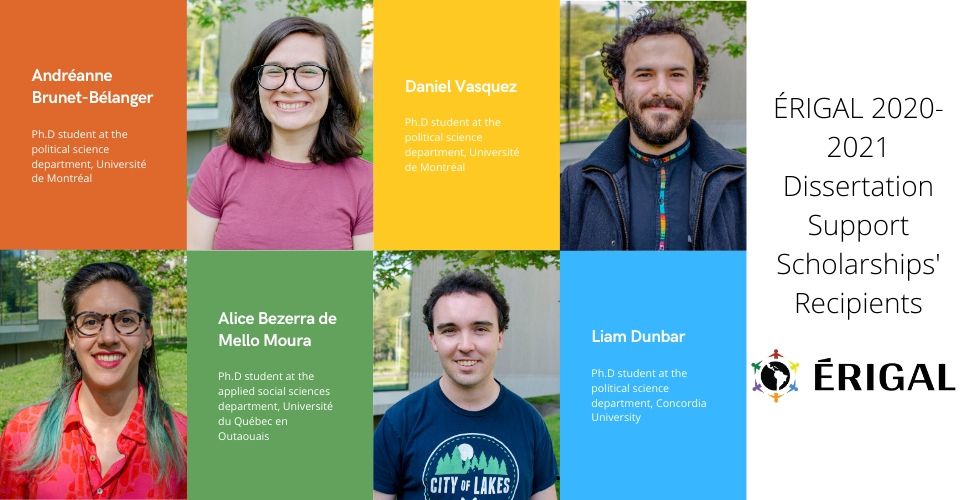Congratulations to the four recipients of the ÉRIGAL 2020-2021 dissertation support scholarships!

ÉRIGAL is pleased to award four writing scholarships worth 2,500$ each for the year 2020-2021.
Our recipients have very original and exciting research projects :
Alice Bezerra de Mello Moura, a Ph.D student in the Department of Applied Social Sciences at the Université du Québec en Outaouais, is working on a project entitled "The House Demolished by the State: the Political Action of Marginalized Populations Faced with Urban Evictions in Recife, Brazil".
She proposes to analyze the potentialities and limits of political action by marginalized populations in the context of forced evictions in the city of Recife, Brazil.
Andréanne Brunet-Bélanger, Ph.D student in the Department of Political Science at the Université de Montréal, proposes a comparison of the process of the principle of free, prior and informed consent (FPIC)’s translation, as set out in the United Nations Declaration on the Rights of Indigenous Peoples, into discourse and practice in different countries. Specifically, she looks at the role of the inter-American human rights system in the dissemination and implementation of the principle of FPIC.
Liam Dunbar, a Ph.D student in the Department of Political Science at Concordia, is interested in the impact of the transition from neoliberalism to neo-extractivism in Bolivia on the anti-government resistance of environmental and indigenous organizations. He proposes to study the extent to which certain factors specific to neoliberalism and neo-extractivism have influenced the development of forms of political resistance to these systems.
Finally, Daniel Vasquez, a Ph.D student in the Department of Political Science at the Université de Montréal, analyzes the role of intellectuals in the contemporary Honduran political system (1980-2019). Daniel argues that Central America serves as a pivot in the development of networks of Latin American intellectuals at different moments in contemporary history. He then proposes to question the interconnections between the Honduran intellectual sphere and international intellectual networks, highlighting the material and immaterial circulations and exchanges involved in the production of knowledge on politics.
We wish them great success in their research project!


